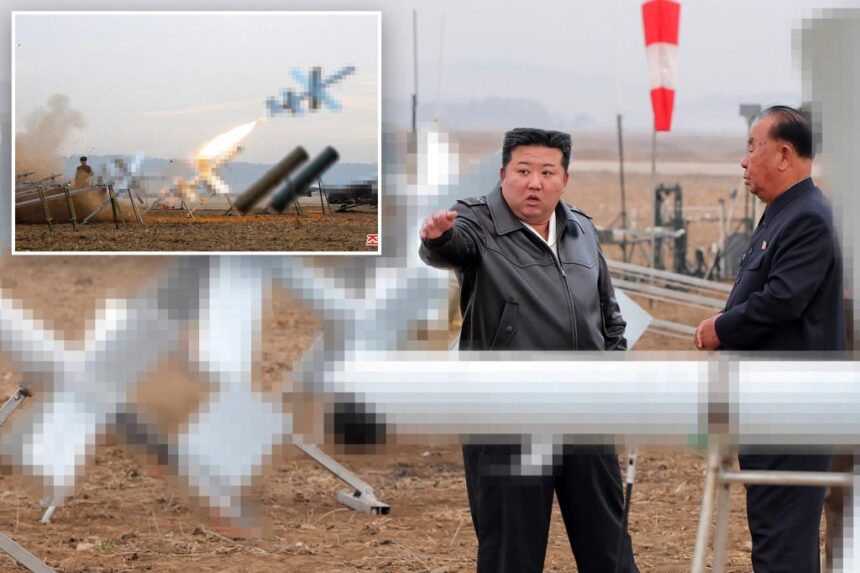North Korean leader Kim Jong Un oversaw a test of suicide drones and has ordered the mass production of these aerial weapons, stating that the global deployment of such drones necessitates an immediate update in military strategies. This development comes amidst a growing military collaboration between North Korea and Russia, raising speculations about potential technical assistance from Moscow in the drone development.
Suicide drones, also known as loitering munitions, have gained prominence in conflicts such as the war in Ukraine and the Middle East. Kim emphasized the importance of establishing a serial production system for these drones to ramp up mass production, reflecting the escalating competition worldwide in utilizing drones for military purposes.
The use of drones by North Korea has also been a cause for concern, as they have flown across the border into South Korea, including over sensitive areas like Seoul and the no-fly zone near the South Korean presidential office. As a response, South Korea has deployed countermeasures to intercept North Korean drones.
The recent ratification of a comprehensive strategic partnership between North Korea and Russia, which includes a mutual defense pact signed in June, has further cemented their military cooperation. North Korea has deployed troops to support Russia on the western frontlines in the conflict with Ukraine, with reports suggesting North Korean soldiers have engaged in combat alongside Russian forces.
Kim Jong Un’s emphasis on the urgency of updating military theories, practices, and education in light of the increasing use of drones in warfare underscores the evolving nature of modern conflicts. The integration of drone technology into military strategies is becoming a crucial aspect of national defense and security worldwide. This shift in military dynamics necessitates a proactive approach in adapting to the changing landscape of warfare.






